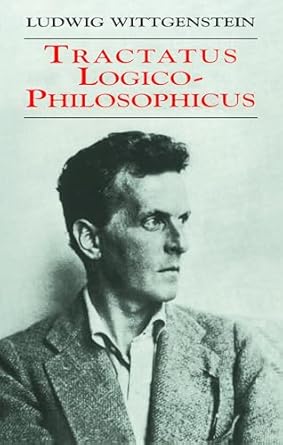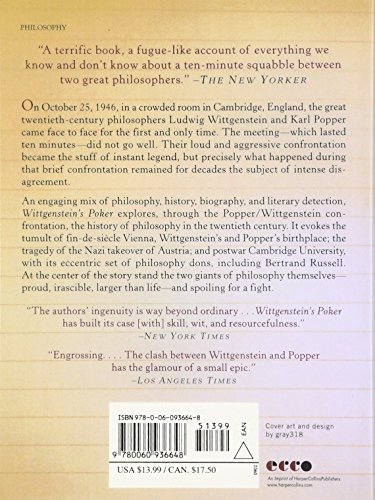Wittgenstein on Sense and Grammar for Philosophers
Category: ludwig wittgenstein

The distinction between sense and nonsense lies at the core of Wittgenstein's philosophy. It underpins his conception of philosophy as a struggle against the illusions of sense generated by misunderstandings of the logic inherent in our language. Furthermore, it informs the notions of "grammar" (in his later work) and "logical syntax" (in his early work), whose investigation aims to resolve those misunderstandings.
This Element contrasts two exegetical approaches. The first approach grounds charges of nonsensicality in a theory of sense that specifies criteria external to the linguistic performance under scrutiny. The second approach rejects any such theory. The former pursues the idea of a nonsensicality test, while the latter holds that illusions of sense can only be overcome from within, through the very capacity that constitutes their defective exercises.
The Element connects these two approaches to opposing understandings of Wittgenstein's conception of language and defends a version of the second approach. The first approach assumes that there are objective criteria for distinguishing sense from nonsense, which can be applied externally to linguistic performances. In contrast, the second approach argues that any such criteria are ultimately grounded in the very practices and capacities that give rise to the illusions of sense in the first place.
According to the second approach, the notion of nonsensicality cannot be fully captured by a set of rigid rules or tests. Rather, it emerges from the dynamic interplay between the logic of our language and the ways in which we actually use it. The illusions of sense that Wittgenstein sought to dispel are not simply failures to conform to some abstract standard of meaning, but defective exercises of our linguistic capacities – capacities that are inherently flexible, context-dependent, and open-ended.
The Element argues that this second approach is more faithful to Wittgenstein's philosophical project. By rejecting the idea of a theory of sense that can be applied externally to language, it preserves the central insight that the struggle against philosophical illusions must be waged from within the very medium in which those illusions arise – our language itself. The investigation of "grammar" and "logical syntax" is not about uncovering some hidden, universal logic of language, but about tracing the complex, fluid, and often informal ways in which we actually use words and construct meaningful sentences.
In this view, the distinction between sense and nonsense is not a matter of conformity to a set of pre-established rules, but an ongoing negotiation and adjustment within the dynamic practice of language use. Philosophical problems, including the problem of distinguishing sense from nonsense, can only be resolved by attending to the nuances and complexities of that practice, rather than by appealing to external, theory-laden criteria.
The Element thus situates the issue of sense and nonsense within the broader context of Wittgenstein's later philosophy, which emphasizes the situated, contextual, and pragmatic nature of language and meaning. By defending a version of the second approach, it aligns with an understanding of Wittgenstein's work that sees the struggle against philosophical illusions as inseparable from the very practices and capacities that give rise to those illusions in the first place.
product information:
| Attribute | Value | ||||
|---|---|---|---|---|---|
| publisher | Cambridge University Press (June 23, 2022) | ||||
| publication_date | June 23, 2022 | ||||
| language | English | ||||
| file_size | 1762 KB | ||||
| simultaneous_device_usage | Up to 4 simultaneous devices, per publisher limits | ||||
| text_to_speech | Enabled | ||||
| screen_reader | Supported | ||||
| enhanced_typesetting | Enabled | ||||
| x_ray | Not Enabled | ||||
| word_wise | Enabled | ||||
| sticky_notes | On Kindle Scribe | ||||
| print_length | 78 pages | ||||
| page_numbers_source_isbn | 1108977391 | ||||
| best_sellers_rank | #3,548,723 in Kindle Store (See Top 100 in Kindle Store) #46,305 in Philosophy (Kindle Store) #180,306 in Philosophy (Books) | ||||
| customer_reviews |
|


















